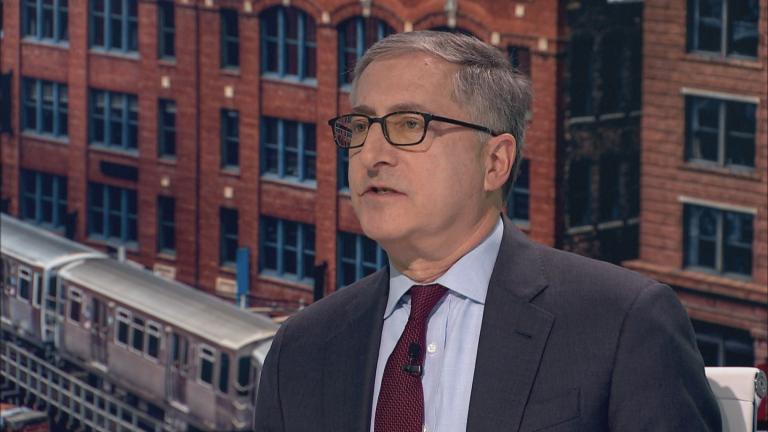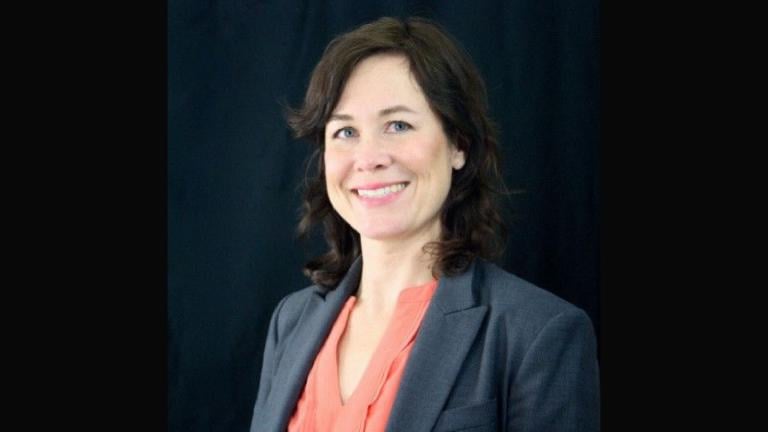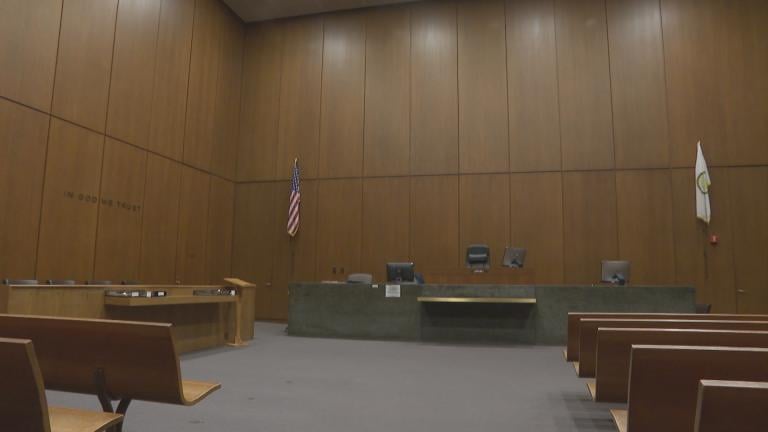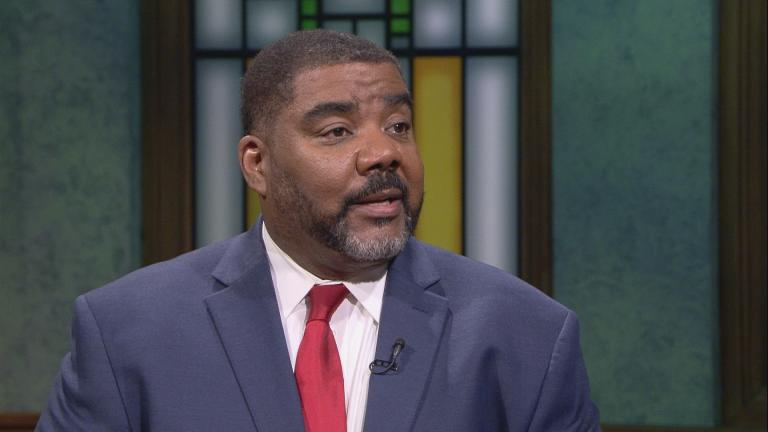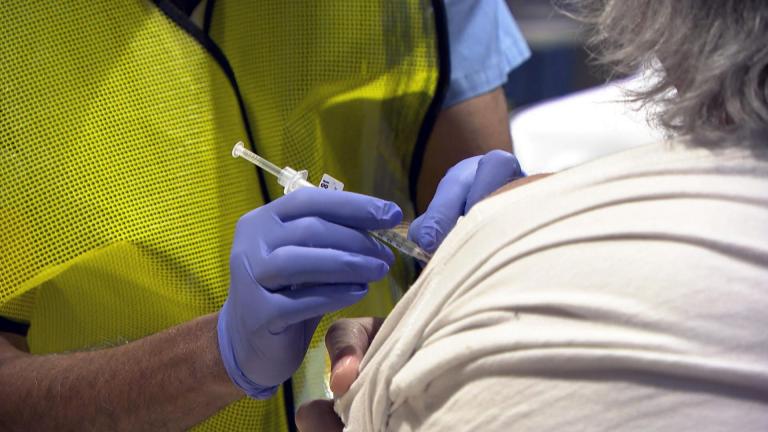No matter the administration in charge, Illinois’ Department of Children and Family Services handles a lot of tough situations.
Many wards of the state have had their own tough times, so it’s no surprise that many have behavioral or mental health problems, said Cook County Public Guardian Charles Golbert, who is legally responsible for 7,000 abused or neglected youth from Cook County.
“By definition, any child who is in DCFS’s care has been removed from the custody of their parents due to abuse or neglect or sex abuse, or torture or abandonment or being drug exposed,” Golbert said.
DCFS has been struggling to find proper placements, particularly for these high-needs youth for whom the agency is having to stand in as a pseudo parent, such that some children and teens who have had a stint at a psychiatric hospital are there after they’ve been cleared for release because there’s nowhere for them to go. It’s known as Beyond Medical Necessity, or BMN.
“Psychiatric hospitalization should rarely, rarely ever be more than a week or two, to stabilize somebody and then for them to be discharged with a treatment plan. A psychiatric hospital is in no way intended to be anything longer than that. ” Golbert said. “For one, your liberty is curtailed. You’re locked up.”
There’s little or no visitation, and limited opportunities to go outside.
“Imagine what it says to a child to see other kids come in, be treated, leave after a week. And they’re (wards of the state) stuck there for months, and months, and months because there’s nowhere for you,” Golbert said. “imagine the message that that sends to these children. It very powerfully tells these children that you don’t matter. And these are kids that often have attachment issues to begin with, by definition — they’ve been removed from abusive parents to be in DCFS care.”
James McIntyre is a leader of the Foster Care Alumni of America, Illinois Chapter, who as a ward of the state said he experienced the full gamut of DCFS services – he was a foster child, adoptee, had stays in congregate settings.
He also had a stay at a psychiatric hospital. McIntrye said his adoptive family abused and tortured him, then dropped him off at one, thus severing their ties to him.
“It’s like you are the only sane person in an insane asylum. You know that you’re only there because there’s no place else for you to go. And when you’re there, you have no access to educational services, or very little access to appropriate educational services,” he said, noting there’s no recognition of birthdays or holidays. “It just becomes an every day is Groundhog’s Day situation. And then at what point do you have another psychotic break, when then makes you – at least you’re in a psych hospital to handle it, but then you sort of backtrack your treatment.”
McIntyre said that leads to stereotypes that label foster children as troublesome, and contributes to youth in state care having trouble finding safe, foster and adoptive homes
He said it destroys youths’ trust in the system, such that later in life they don’t take advantage of programs intended to help youth in care.
Mcintryre, Golbert, and other critics say DCFS is failing to do its job by forcing youth to stay in psychiatric facilities too long, or beyond when it’s medically necessary.
Juvenile Court Judge, and former Cook County Public Guardian, Patrick Murphy has agreed. Murphy is presiding over a special group of cases for youth in these situations that Golbert refers to as the “Placement Crisis” or “Stuck Kids” docket.
Specifics vary. In some situations, youth aren’t “stuck” in hospitals; rather they are kept in juvenile facilities beyond their sentence, or they have had to sleep on office floors because DCFS doesn’t have a proper place, or bed, for them.
In total, DCFS director Marc Smith has been found in contempt of court a dozen times for violating a court order to find a safe, proper place for youth in DCFS care within the judge’s set deadline.
The latest contempt charge finding was last week. In that instance, a teen girl has had to stay confined in a psychiatric hospital for 170 days since she was to have been discharged.
“This is unprecedented and speaks to what a mess DCFS is in. I’ve been with the public guardian’s office now for 31 years,” Golbert said. “And in 31 years to the best of my memory the juvenile court here in Chicago has never once set up a special, consolidated docket to deal with all of the cases in all of the other courtrooms because a problem with DCFS had become so widespread and was harming so many children.”
He said he believes judges are at their wit’s end because other attempts to improve things have not borne change.
DCFS is fighting the contempt charges.
“Since DCFS is doing everything possible to place these children, DCFS has taken and continues to take the legal position that these contempt orders are not appropriate and has appealed to a higher court to overturn these orders as expediently as possible,” agency spokesman Bill McCaffrey said in a statement.
Youth can’t be sent just anywhere; the placement must be somewhere that can meet their needs.
Bed space is limited, particularly for those with higher needs.
Even before the so-called “great resignation,” those in the industry say the child welfare space was experiencing a workforce shortage.
“While previous administrations and general assemblies hollowed out DCFS, under the current administration the child welfare system in Illinois has received hundreds of millions in additional funding,” McCaffrey said in a statement. “We have made significant, measurable progress as a result, including hiring more employees, increasing support for our private partners and addressing some of the longstanding challenges facing the department after years of neglect.”
The agency’s budget has increased in recent years. The new Fiscal Year 2023 that began in July provides $250 million to hire additional DCFS staff. McCaffrey said the agency has within the past several years upped by double digits the rates it pays to not-for-profits the state contracts with for youth in care.
Several Republican legislators have called on Gov. J.B. Pritzker to fire director Smith, and the Illinois branch of the National Association of Social Workers has said “holding on to failed leadership just so our governor doesn’t have to admit his choice didn’t work out is hurting children in Illinois.”
Pritzker has stood by Smith and blamed the loss of bed capacity for youth in care on his predecessor, Gov. Bruce Rauner, and on the budget impasse that occurred under his watch.
DCFS is opening new beds, with 60 more spaces created this calendar year so far.
At this point, most of the youth in the center of the contempt of court situations have by now been properly placed.
Others soon will be.
The girl from last week’s contempt order is set to be released from the psychiatric hospital to a better setting on July 25.
McIntryre isn’t satisfied and says if he was director he’d be removing every bureaucratic obstacle to ensure kids got placed properly.
“We should not have kids in psychiatric hospitals passed their time of release. We shouldn’t have kids housed in jails. We shouldn’t have kids sleeping in offices. This is a placement capacity issue. And we can either continue to blame the previous administration, who hasn’t been in charge the past three-and-a-half years, or we can do the hard work,” McIntryre said.
He also said Pritzker should personally visit the psych hospitals “to see first hand what it is like on a day-to-day basis for a child that doesn’t need to be there any longer.”
“The governor has had trouble in his own personal life as a child. It was something that gave me hope. It was something that gave me faith. And if it wasn’t for his family being there for him and his siblings, he could have ended up in the foster care system,” McIntyre said. “I would like him to remember what it felt like when he had nobody. Because that is what these kids are going through.”
DCFS in June announced $14.6 million in additional financial support for foster care parents to help offset cost-of-living increases, a funding bump that the agency said is possible because more children than expected are out of DCFS care and are being reunited with their biological families.
“Foster parents and foster youth deserve our state’s investment,” Pritzker said in a June 23 press release. “By increasing financial support to foster parents, caregivers and young adults in care, we are standing up for our most vulnerable youth, and we will continue to do so.”
Guardian Golbert says it will help overall, but he said that won’t benefit the youth in care who are awaiting proper placements.
He is asking a federal court to intervene, and enforce change, as part of a decades-long consent decree overseeing DCFS.
A hearing is scheduled for July 13.
More information about fostering and adoption in Illinois can be found on the DCFS website.
Follow Amanda Vinicky on Twitter: @AmandaVinicky


